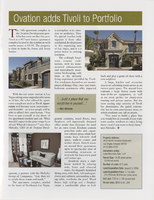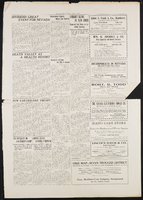Search the Special Collections and Archives Portal
Search Results

Interview with Corbin Harney, August 4, 2005
Date
Archival Collection
Description
Text

Interview with Navor Tito Valdez, June 20, 2005
Date
Archival Collection
Description
Text

Dr. Syed Saquib oral history interview: transcript
Date
Archival Collection
Description
Oral history interview with Dr. Syed Saquib conducted by Barbara Tabach on February 23, 2018 for the Remembering 1 October Oral History Project. In this interview, doctor Syed Saquib discusses the University Medical Center's (UMC) role during the night of the October 2017 mass shooting in Las Vegas, Nevada. He speaks about the hospital's level of preparation and the procedures in place that allowed for an effective and controlled system to treat the survivors. Saquib talks about the group effort that was required to care for all of the patients in an efficient manner. In addition to that night, he also discusses his move to Las Vegas in 2016 and the sense of community he has developed.
Text
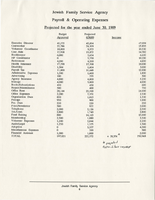
Orientation manual of the Jewish Family Service Agency of Clark County, 1989
Date
Archival Collection
Description
The orientation manual of the Jewish Family Service Agency provides guidance for the duties of the board of directors, the operation of the agency, the organization chart, and staff listing. It also outlines the role of volunteers in the agency.
Text
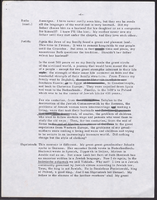
Script for Mothers of Jews, 1964-2006
Date
Archival Collection
Description
Typed script titled "Mothers of Jews" with handwritten notes and edits. Script is undated and is located in folder with Jewish Genealogy Society of Southern Nevada newsletter Family Legacies from 1998-2006 .
Text
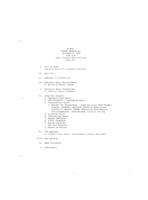
Meeting minutes for Consolidated Student Senate, University of Nevada, Las Vegas, November 06, 1979
Date
Archival Collection
Description
Text
Red Rock Canyon National Conservation Area Records
Identifier
Abstract
The Red Rock Canyon National Conservation records (1965-2007) contain information about the Red Rock Canyon National Conservation Area (previously the Red Rock Canyon Recreation Lands). It largely consists of newspaper clippings on a variety of events related to Red Rock Canyon from 1965 to 1998 with the bulk from the 1980s and 1990s. The records also include Bureau of Land Management documents pertaining to interpretive efforts, visitation statistics, and law enforcement reports. Also included are the newsletters (1990-1998) and volunteer training manual of the Friends of Red Rock Canyon, a non-profit volunteer organization.
Archival Collection

Elissa Miller interview, March 3, 1980: transcript
Date
Archival Collection
Description
On March 3, 1980, Frank Fusco interviewed Elissa Miller (born October 29th, 1935 in San Francisco, California) at the University of Nevada, Las Vegas. In this interview, Mrs. Miller talks about her life in Virginia City and Reno, Nevada. She discusses the growth in Reno and the problems that came from that. She also speaks about living life in Virginia City, a much smaller town in Nevada. She talks about the people who live and work there, as well as some of the things the town is known for, such as the International Camel and Ostrich Races that are held annually.
Text

